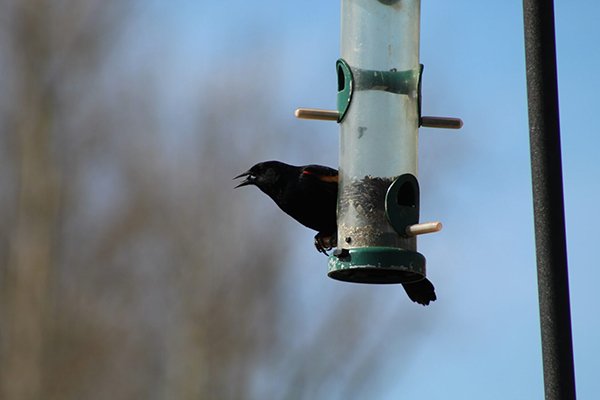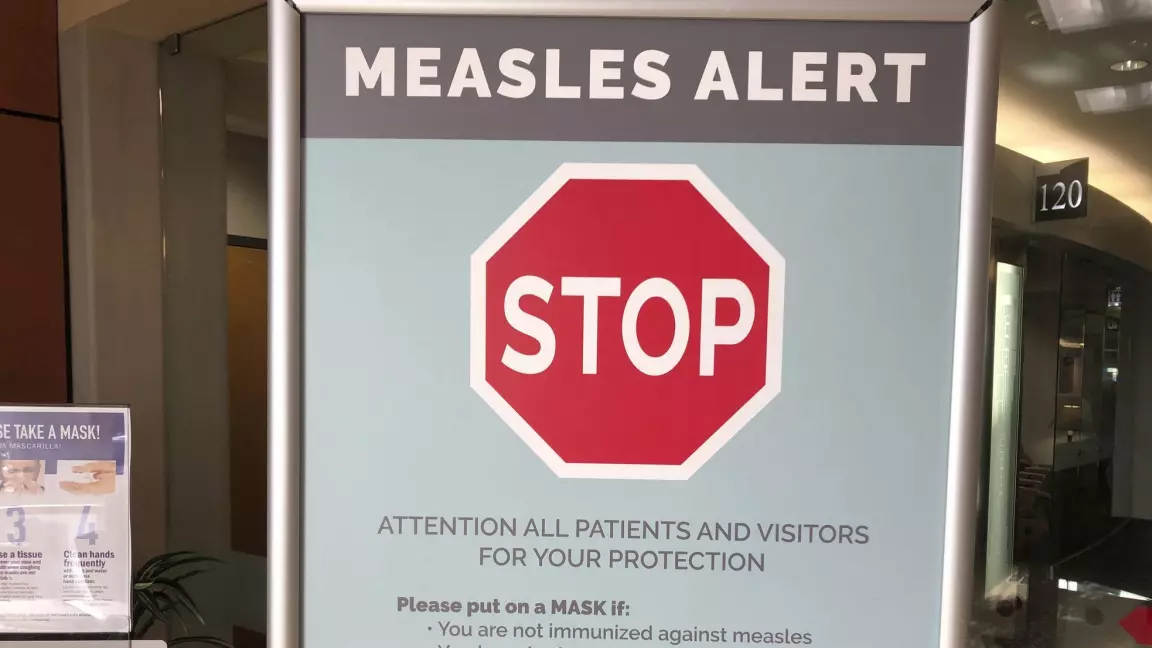Health
BC SPCA asks public to remove bird feeders | Columbia Valley, Cranbrook, East Kootenay, Elk Valley, Kimberley, Ktunaxa Nation – E-Know.ca

Request due to avian influenza outbreak
The BC SPCA is asking the public to temporarily remove backyard bird feeders and to empty bird baths due to a highly pathogenic avian influenza (HPAI) spreading across the country.
Avian influenza – or “bird flu” – is a virus that can affect many different species of birds. This includes farm animals like chickens and turkeys, but can also affect wild and pet birds. The H5N1 strain is considered highly pathogenic, causing severe illness and death in birds.
Although waterfowl (including ducks, geese and gulls) and raptors (eagles, hawks and owls) are at highest risk, avian influenza viruses can infect all avian species. The virus is shed by infected birds through feces and respiratory secretions and is very resilient – it can survive in the environment for several months and continue to infect other birds.
“Bird feeders can be sites for disease spread because they encourage unnatural congregations of birds and attract other wildlife,” said Dr. Andrea Wallace, manager of wild animal welfare for the BC SPCA. “Fallen seed is also an especially dangerous source of disease – when birds feed from the ground, they are also exposed to droppings that accumulate below a feeder.” She says the presence of bird feeders and baths can also increase the risk of transmitting the virus between nearby animals such as backyard chickens or turkeys.
“On rare occasions, this virus can also cause disease in humans who have been in close contact with infected birds, or heavily contaminated areas,” added Wallace. “We need to do everything we can to stop H5N1 in its tracks.”
Wallace says in addition to removing bird feeders and emptying bird baths, the BC SPCA is asking the public to monitor their outdoor surroundings for any signs of sick birds. “Birds may appear lethargic, unusually “fluffed up,” have nasal discharge, or have excessively watery eyes or swelling of the head and eyelids.”
The public is asked to report sightings of sick or dead wild birds to the Canadian Wildlife Health Cooperative (CWHC) at 1-800-567-2033. If the report is assessed to require further investigation, a biologist may retrieve the carcass for further testing. “Please do not bring deceased birds to a wildlife rehabilitation centre or veterinary clinic as they will not be able to test for the disease,” said Wallace.
Wallace notes that while hummingbird feeders pose the lowest risk because they are species-specific and have a more limited group of birds visiting them, it is important to regularly change the nectar in and clean hummingbird feeders to prevent deadly fungal outbreaks. And remember, if you see sick birds at your feeder, take it down right away!
For more information, visit spca.bc.ca.
Lead image: Red-winged-blackbird at a feeder. Jessie McFarland Photo
Submitted by BCSPCA
Please enable JavaScript to view the comments powered by Disqus.
Article Share
Article Share
Health
Quebec successfully pushes back against rise in measles cases – CBC.ca


Quebec appears to be winning its battle against the rising tide of measles after 45 cases were confirmed province-wide this year.
“We’ve had no locally transmitted measles cases since March 25, so that’s good news,” said Dr. Paul Le Guerrier, responsible for immunization for Montreal Public Health.
There are 17 patients with measles in Quebec currently, and the most recent case is somebody who was infected while abroad, he said.
But it was no small task to get to this point.
Le Guerrier said once local transmission was detected, news was spread fast among health centres to ensure proper protocols were followed — such as not letting potentially infected people sit in waiting rooms for hours on end.
Then about 90 staffers were put to work, tracking down those who were in contact with positive cases and are not properly vaccinated. They were given post-exposure prophylaxis, which prevents disease, said Le Guerrier.
From there, a vaccination campaign was launched, especially in daycares, schools and neighbourhoods with low inoculation rates. There was an effort to convince parents to get their children vaccinated.
Vaccination in schools boosted
Some schools, mostly in Montreal, had vaccination rates as low as 30 or 40 per cent.
“Vaccination was well accepted and parents responded well,” said Le Guerrier. “Some schools went from very low to as high as 85 to 90 per cent vaccination coverage.”
But it’s not only children who aren’t properly vaccinated. Le Guerrier said people need two doses after age one to be fully inoculated, and he encouraged people to check their status.
There are all kinds of reasons why people aren’t vaccinated, but it’s only about five per cent who are against immunization, he said. So far, some 10,000 people have been vaccinated against measles province-wide during this campaign, Le Guerrier said.
The next step is to continue pushing for further vaccination, but he said, small outbreaks are likely in the future as measles is spreading abroad and travellers are likely to bring it back with them.
Need to improve vaccination rate, expert says
Dr. Donald Vinh, an infectious diseases specialist from the McGill University Health Centre, said it’s not time to rest on our laurels, but this is a good indication that public health is able to take action quickly and that people are willing to listen to health recommendations.
“We are not seeing new cases or at least the new cases are not exceeding the number of cases that we can handle,” said Vinh.
“So these are all reassuring signs, but I don’t think it’s a sign that we need to become complacent.”
Vinh said there are also signs that the public is lagging in vaccine coverage and it’s important to respond to this with improved education and access. Otherwise, microbes capitalize on our weaknesses, he said.
Getting vaccination coverage up to an adequate level is necessary, Vinh said, or more small outbreaks like this will continue to happen.
“And it’s very possible that we may not be able to get one under control if we don’t react quickly enough,” he said.
Health
Pregnant women in the Black Country urged to get whooping cough vaccine – BBC.com


Pregnant women urged to get whooping cough vaccine
Pregnant women in the Black Country are being urged to get vaccinated against whooping cough after a rise in cases.
The bacterial infection of the lungs spreads very easily and can cause serious problems, especially in babies and young children.
The Black Country Integrated Care Board (ICB) is advising pregnant women between 16 and 32 weeks to contact their GP to get the vaccine so their baby has protection from birth.
The UK Health Security Agency warned earlier this year of a steady decline in uptake of the vaccine in pregnant women and children.
Symptoms of the infection, also known as “100-day cough”, are similar to a cold, with a runny nose and sore throat.
Sally Roberts, chief nursing officer for the ICB, which covers Wolverhampton, Dudley, Walsall and Sandwell, said anyone could catch it, but it was more serious for young children and babies.
“Getting vaccinated while you’re pregnant is highly effective in protecting your baby from developing whooping cough in the first few weeks of their life – ideally from 16 weeks up to 32 weeks of pregnancy,” she said.
“If for any reason you miss having the vaccine, you can still have it up until you go into labour.”
Follow BBC West Midlands on Facebook, X and Instagram. Send your story ideas to: newsonline.westmidlands@bbc.co.uk
Health
Measles cases stabilize in Montreal – CityNews Montreal


The number of measles cases has stabilized, according to the Montreal Public Health.
Since March 25, there have been no contaminations reported within the community.
“Our teams have identified all contact cases of measles,” said media relations advisor Geneviève Paradis. “It’s a laborious task: each measles case produces hundreds of contacts.”
All community transmission cases since February 2024 have been caused by returning travelers who were either unvaccinated or partially vaccinated.
Currently, there are 18 measles cases in Montreal – with 46 total in Quebec. This according to the April 18 figures from the provincial government.
“With the summer vacations approaching, if you’re travelling, it is essential to check if you are protected against measles,” explained Paradis.
According to Montreal Public Health, a person needs to have received two doses after the age of 12 months to be immunized against the virus.
They’ve launched a vaccination campaign throughout the region, and currently, 11,341 people have been vaccinated against measles in Montreal between March 19 and April 15.
Vaccination is also being provided in schools and at local service points.
“The vaccination operation is under the responsibility of the five CIUSSS of the territory,” concluded Paradis.
-



 Tech19 hours ago
Tech19 hours agoCytiva Showcases Single-Use Mixing System at INTERPHEX 2024 – BioPharm International
-
News21 hours ago
Tim Hortons says 'technical errors' falsely told people they won $55K boat in Roll Up To Win promo – CBC.ca
-



 Politics24 hours ago
Politics24 hours agoFlorida's Bob Graham dead at 87: A leader who looked beyond politics, served ordinary folks – Toronto Star
-



 Health15 hours ago
Health15 hours agoSupervised consumption sites urgently needed, says study – Sudbury.com
-



 Tech21 hours ago
Tech21 hours agoAaron Sluchinski adds Kyle Doering to lineup for next season – Sportsnet.ca
-
News14 hours ago
2024 federal budget's key takeaways: Housing and carbon rebates, students and sin taxes – CBC News
-



 Politics22 hours ago
Politics22 hours agoTrump faces political risks as trial begins – NBC News
-
Tech20 hours ago
Nintendo Indie World Showcase April 2024 – Every Announcement, Game Reveal & Trailer – Nintendo Life






